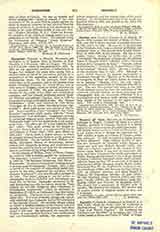

Cassani (also CASANI), JOSEPH, b. at Madrid, March 26, 1673, entered the Society of Jesus, November 16, 1686, was still in active exercise of priestly functions in 1745, and d. in 1750. He was one of the founders of the Academia de la Lengua espanola at Madrid, and published there a “Diccionario de la Lengua Castellana” in 1726-1730, in six volumes. He was a very prolific writer. Among his works may be noted: “Admirable vida, singulares virtudes etc. del extstico Varon P: Dionisio Rickel” (Madrid, 1738); “Varones ilustres de la Compania de Jesus”; “Escuela militar de fortification”; “Tratado de la naturaleza y origen de los cometas” (Madrid, 1737). He was a member of the Academia from July 6, 1713. Although he never visited America, he appeals particularly to Americans through his “Historia de la Provincia de la Compania de Jesus del Nuevo Reyno de Granada en la America” (Madrid, 1741), the only regular chronicle of the Jesuit Order in Colombia thus far extant. The fact that Cassani was never in the New World detracts somewhat from the usefulness of this otherwise valuable history, as far as ethnologic and ethnographic data are concerned; otherwise it is a conscientious and earnest work, giving interesting data, chiefly of the missions in the upper Orinoco basin. The work is exceedingly rare.
AD. F. BANDELIER

